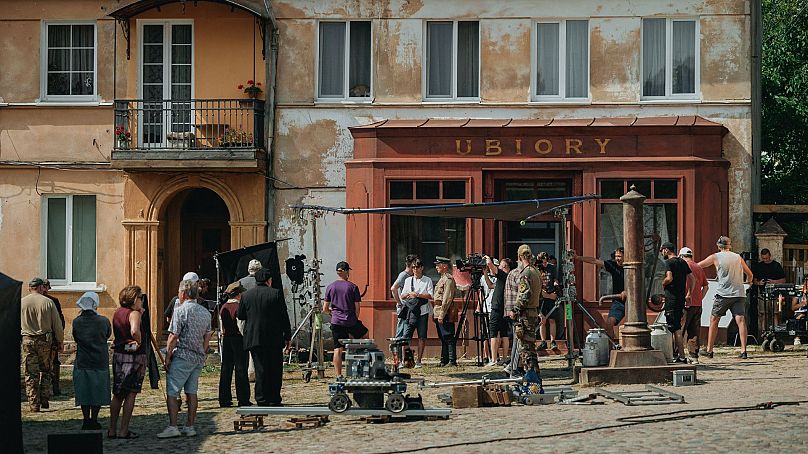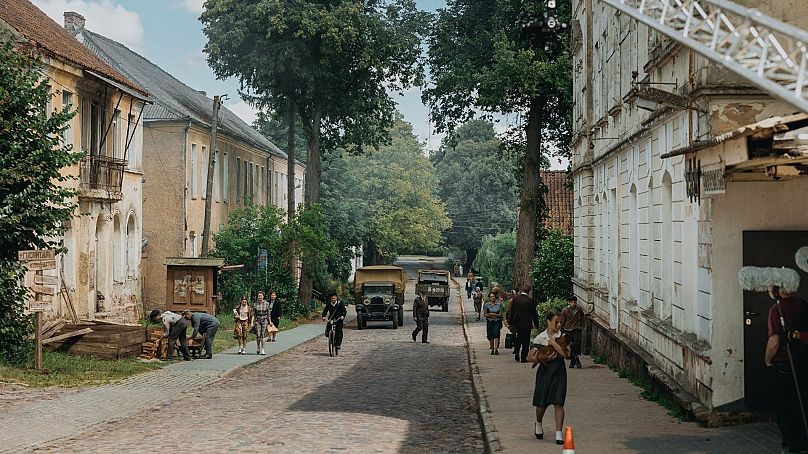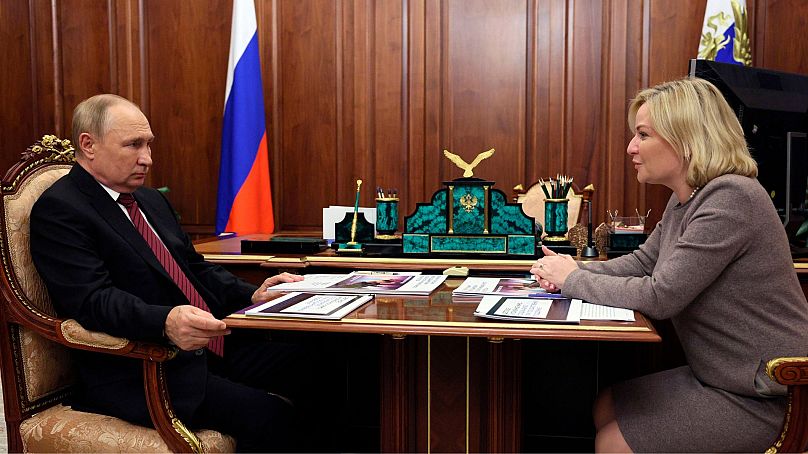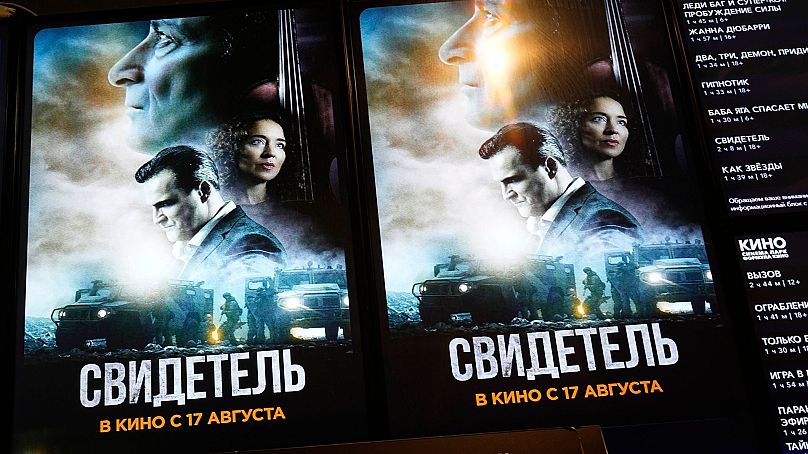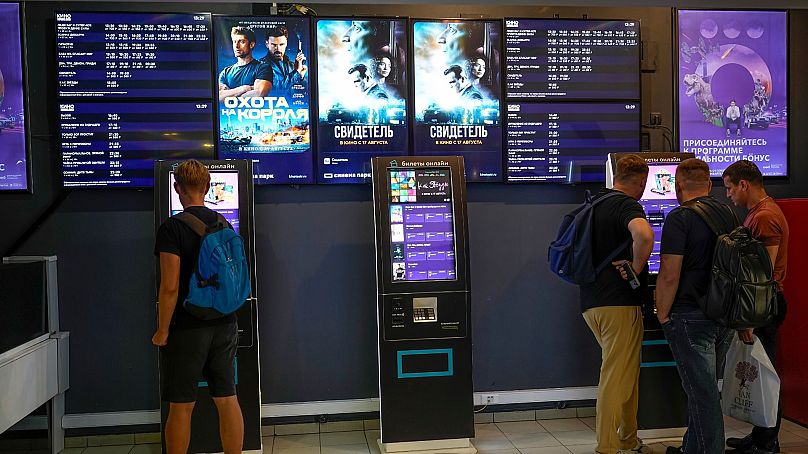Russian filmmakers, cut off from the West due to the Ukraine conflict, are using Kaliningrad, with its European charm, as a backdrop.
With their access to the Western world cut off since the onset of the conflict in Ukraine, Russian filmmakers have turned their attention to the city of Kaliningrad as a European backdrop for their cinematic works.
 ADVERTISEMENT
ADVERTISEMENT
 ADVERTISEMENT
ADVERTISEMENT
Nestled along the Baltic Sea coast, sandwiched between Poland and Lithuania, this Russian enclave is adorned with charming Germanic facades, winding streets, and historic churches.
Despite being captured by the Red Army in 1945, the region still bears the architectural remnants of its past as East Prussia. This unique blend of influences has drawn in Russian directors and producers who seek settings that are less reminiscent of the Soviet era.
Kaliningrad's architectural charm lures filmmakers
"Filming in Kaliningrad is very convenient. The administration welcomes us with open arms, we pay everything in rubles and the extras speak Russian," said Muscovite producer Nikita Sapronov.
He recently chose the city as the backdrop for his television series "GDR," a depiction of East Germany set around the fall of the Berlin Wall.
Originally slated to be filmed in Germany, the situation changed due to Russia's military involvement in Ukraine, prompting what Sapronov described as "Europe basically shut the door in our face."
His team fell back on Kaliningrad, recreating a section of the Berlin Wall in the city centre this year.
"Kaliningrad perfectly filled in for East and West Berlin," with its mix of German and Soviet buildings, Sapronov said.
During the Cold War, Kaliningrad was already a much-loved location for directors looking to stage clashes between the Red Army and Nazi troops in Europe.
Now, the regional government aims to expand its array of sets and backdrops through an ambitious renovation initiative.
Since 2022, Kaliningrad has become "the ultimate European set" for Russians, said regional culture and tourism minister Andrei Yermak. "We are already welcoming 10 shoots a year."
Advertisements offering courses in film production are everywhere in Kaliningrad and a massive studio is under construction, touted by local media as "Hollywood on the Baltic Sea".
How is the Russian film industry managing to stay a float?
The surge in filming activity in Kaliningrad reflects the unexpected vitality of the Russian film industry, even in the face of its detachment from the international cultural arena and the departure of workers fearing military conscription.
Domestic film productions have reaped the rewards of substantial government subsidies - according to the Russian industry publication Bulletin Kinoprokatchika, the number of Russian children's movies produced in 2022 doubled compared to the previous year.
Russian films have experienced a 30 percent rise in popularity on streaming platforms and a 25 percent increase in television viewership - though most of these productions are designed exclusively for domestic audiences.
To bolster the cinema sector, the government augmented its support to 14.9 billion rubles (€144 million) in 2022, as part of President Vladimir Putin's initiative to replace imported goods with domestically manufactured products, spanning from cars, food and drink.
Russian cinema seems to be largely reliant on this state backing to stay on its feet.
Notably, out of the 26 films financed last year by the Russian Cinema Fund, only one - a light-hearted comedy - proved profitable.
"The Witness": A controversial film reflecting the Kremlin's narrative
Amidst this flourishing cinematic landscape, a notable addition stands out: "The Witness," a state-sponsored drama that premiered in Russia on 17 August.
The film presents a narrative centred around a Belgian violinist's journey to Kyiv for a performance in February 2022, coinciding with Russia's bombings in Ukraine.
The artist's experience is upended by a series of harrowing events attributed to “inhuman crimes and bloody provocations by Ukrainian nationalists,” and he becomes determined to reveal the truth to the world about his experiences.
"The Witness" marks the first feature film depicting the 18-month-old invasion, painting Ukrainian troops as violent neo-Nazis who inflict torture and death upon their own people. One Ukrainian soldier wears a T-shirt with Hitler on it. The film also has the main character’s young son wondering: “Isn’t Ukraine Russia?”
Controlling imagery has been a regular feature of dictatorships. Propaganda films were produced in the Soviet Union, Nazi Germany and Italy under Benito Mussolini — as well as in North Korea and the Middle East.
In today’s Russia, authorities speak openly about their intention to bring the Ukraine war — or, rather, the Russian narrative around it — to the big screen.
Vladimir Putin has ordered the Culture Ministry to ensure theatres screen documentaries about the “special military operation,” as the Kremlin calls its war in Ukraine.
Russian film critic Anton Dolin describes it as a “vicious system when the state is the main and richest producer in the country.”
Dolin notes that all films have to get a screening license from the Culture Ministry, so “censorship mechanisms” work even for those who don’t take money from the government.
“The Witness” premiered in Russia without much fanfare.
At a movie theatre in Moscow, almost a dozen movie-goers said they came to see films other than “The Witness,” though several said they planned on watching it at some point.
During its first weekend, it had earned just over 6.7 million rubles - or about €65,000.











